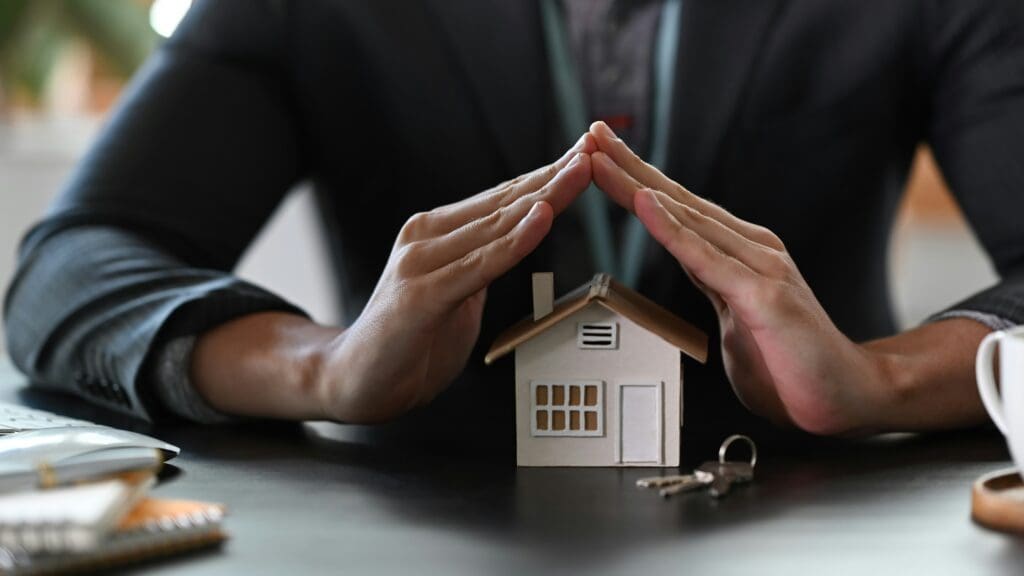What Not to Fix When Selling Your House in the UK

Estimated reading time 8 minutes
If you are planning to sell your home, you will likely want to show it off in the best possible light. Whether that means a spring clean, repainting a chipped wall or upgrading the kitchen, there are plenty of things that should be fixed before you sell your house. However, there are also things that you can leave as they are, without the buyer being deterred.
Do I need to get all the repairs done before I sell my house?
No, not at all. You’ll certainly have to ensure some basics are remedied to maintain buyer interest, but full-scale repairs and makeovers are not necessary. Buyers generally want to see the home looking authentic, loved and lived in, not overly staged and fake.
If you decide that every repair is a priority, you’ll not only end up spending more to achieve this, but you may lower the chances of getting your property sold.
It’s important to sell your house with the buyer's perspective in mind. If you set about fixing everything and replacing or upgrading items exhibiting minor wear & tear, you might find that you push buyers away. Tastes aren’t universal – what you love could be vastly different to what your buyers are looking for, and vice versa.
What do I need to fix when I sell a house?
Even though there are plenty of things that you don’t need fixing when selling your home, there are definitely items worth repairing or replacing before you get your house sold.
Electrical faults
Whilst you do not need an electrical safety certificate to sell a house, it is highly recommended. This gives the buyer added confidence that the house is safe and that there aren’t any surprising electrical repairs awaiting them. Request help from an electrician so that you can get the certificate granted, and ensure that any broken plug sockets, faulty wiring or unreliable light switches are fixed.
Damp
Damp can be a huge problem that poses not only risks to the property but also to the occupants’ health. A buyer will almost certainly hold off on making an offer if the home has a damp issue.
Leaking roof
If your roof is letting in water, a host of structural problems may be developing within the property. Even if the issue isn’t this severe, it’s extremely off-putting for a buyer to see a roof with missing tiles or other signs of damage. They might consider turning away before they even reach the front door.
Heating and plumbing issues
If your heating isn’t working properly, you have leaking pipes or other plumbing issues, get these fixed before you sell. A boiler service might be necessary and will provide potential buyers with some added reassurance about the home.
Infestations
If you’ve had rats, bedbugs, mice or any other form of infestation, ensure any vermin problem has been fully eradicated before selling the house. Evidence such as droppings will not only make your home unsightly and harder to sell, but could pose health risks.
Subsidence and other structural issues
You may have active subsidence or historic subsidence. Either can make it harder to sell a home, so be sure to address these problems. If you don’t, you might still be able to sell, but your market will be limited, and your sale price will likely end up much lower.
Minor repairs
If you have smaller issues like missing lightbulbs, a small hole in the wall or missing door handles, these jobs are quick fixes that don’t cost much. Decide to leave them, and buyers may question what else could be wrong.
What not to fix when selling a house
What about the issues you can leave out, without your sale being affected?
There are plenty. It’s worth remembering that you want your home to look good, but it also needs to look lived in. It should ideally represent a functioning home that new buyers could see themselves living in.
Prior to arranging viewings, for a fresh perspective, it may be worth asking someone you trust to look at your home and give their own impression of it.
Sometimes, all it takes is a deep clean and a little rearranging of the furniture. However, if there are still a few issues that you think could be better by being fixed, don’t panic. Plenty of things can be left as they are without causing the buyer any concern.
Flooring
Your carpet may look worn, or the vinyl tiles may be a little faded, but it generally isn’t necessary to replace any flooring. You could easily spend a significant sum here, only for the buyer to change it to suit their tastes as soon as they move in. Allow the new owners to make their mark on the home.
White goods
You won’t always leave white goods behind, but sometimes you might decide to, especially if your next property is already fully equipped. However, if your existing freezer, for example, is showing signs of age, it isn’t worth replacing just to impress the buyer. For one, they may have their own, and secondly, if it’s still functional, it’s a significant financial investment to replace this type of appliance.
Windows and doors
Deciding to upgrade your windows and doors can be a costly and slow process. Their condition won’t do much to change a buyer's opinion of your house, unless any problems are severe and easily noticeable.
In any case, as with flooring and white goods, there is a good chance that a buyer may wish to change these aspects of the home to suit their own preferences.
General wear and tear
Scuff marks on skirting boards, small chips in kitchen worktop and dents in the flooring can all be left as they are. For such minor imperfections, complete overhauls are unnecessary. Of course, a little cleaning will help smarten up your home, but it isn’t worth going too far to remedy minor wear and tear.
Bathroom suites
You may have had a grand plan to refurbish your bathroom, but with the house now being sold, you may prefer to keep this plan on hold. For the expense, you may not see the return, and as long as everything works functionally, there is no need to spend vast sums on a visual upgrade. Instead, ensure that bathrooms are clean and tidy with no unpleasant stains or blemishes.
Garden overhauls
As long as your garden isn’t vastly overgrown and the fences aren’t collapsing, you don’t need to redesign your garden before you sell your house. Again, your tastes could be vastly different to the buyers. Simply be sure to keep the lawn tidy, ensure fences are upright and remove excessive weeds.
A new kitchen
The kitchen is a hub of activity at home, and we know this space can sway a buyer. For the cost and the potential lack of return, a kitchen can be left as is. As with other aspects of the home, new buyers often want to make their own mark on the property, and your new £20,000 kitchen might not do that for them. A repaint of the cupboards or perhaps changing broken handles may be all you need to keep a buyer interested. A new kitchen may increase the value of your home, but it’s an expense you could avoid, putting the funds to better use if you are selling.
An extension
It has often been reported that an extension can increase the value of your home by as much as 23%, but these are construction projects that can’t be made on a whim. They can be very expensive, and take a long time to get built. In that time, the market could have changed considerably, and you might not see anywhere near the return you expected. You could instead save the cash and plan an extension for your next home.
You might be struggling with selling your home, perhaps due to the current market, or because you feel your house is unsellable. Bettermove helps you get past that. With two guaranteed routes to sale, it’s certain your home sells. In fact, we sell your property fast – in as little as seven days, if you like. We either buy your home ourselves, or we present it to selected cash house buyers. Either way, your sale is guaranteed, and with no fees or commissions, you sell your house for free, too.



